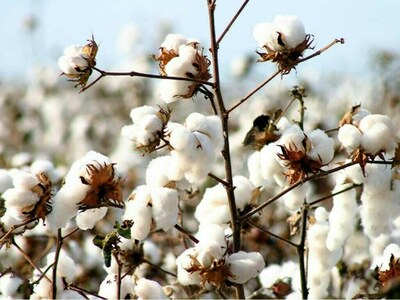Cotton Market Sees Stability Amidst Challenges
Cotton prices have generally remained stable recently, although trading volume has been somewhat limited. New York cotton futures have also experienced a price increase. There are indications that discussions regarding the Export Finance Scheme (EFS) may be deferred until the upcoming budget. The Pakistan Cotton Ginners Association (PCGA), expressing frustration with the government, has reportedly appealed to the Chief Justice of the Supreme Court and the Army Chief, seeking legal remedies in this matter.
Shahid Rasheed Butt, a former President of the Islamabad Chamber of Commerce and Industry, has pointed out that the import bill is growing due to increased cotton, cotton yarn, and textile imports.
Sajid Mahmood, who heads Technology Transfer at the Central Cotton Research Institute (CCRI) in Multan, has commented that the 18% sales tax on local cotton and the EFS facility on imported cotton are adding financial pressure to cotton farmers and local industries.
Market Overview
Over the past week, the domestic cotton market has largely remained steady. Transactions occurred at prices ranging from 15,500 to 17,500 rupees per maund, contingent on quality and payment terms. While mills have shown some interest in purchasing cotton, ginners’ cotton inventories are gradually declining. At the same time, imported cotton continues to arrive swiftly, with mills making payments, causing financial challenges in the local market. The influx of imported cotton yarn and fabric is also impacting textile spinners, who are encountering difficulties in selling their yarn, and subsequently affecting the weaving sector.
The FPCCI, APTMA, PCGA, and other organizations have engaged with government departments concerning the EFS. The PCGA, expressing disappointment, has sent a letter to the Army Chief, requesting assistance in resolving EFS-related issues to facilitate cotton restoration and address ginning problems. A decision on this matter is anticipated during the budget discussions.
Cultivation and Concerns
Reports regarding current cotton cultivation are varied. While crop conditions are satisfactory in some regions, others are facing water scarcity. The rising heat is also raising concerns about its potential effects on new plants. Water issues may lead to delays in cotton sowing in several areas.
Shahid Rasheed Butt has also noted that heightened competition in the global textile market poses a challenge for Pakistan, intensifying global competition and increasing business costs for the textile sector. The decline in cotton production is further straining the import bill.
Chairman of PCGA, Dr. Jassu Mal Leemani, has written to the Chief Justice of the Supreme Court after appealing to the Army Chief, seeking intervention regarding perceived discriminatory treatment against local cotton farmers. The letter also emphasizes the difficulties faced by local textile spinners, manufacturers, and cotton farmers due to GST and EFS-related issues, calling for actions to ensure fair competition.
Pricing and Global Market
Cotton rates in Punjab and Sindh vary between Rs 15,500 and Rs 17,500 per maund, depending on quality and condition. The Karachi Cotton Association’s Spot Rate Committee maintained the rate at Rs 16,700 per maund.
Chairman of the Karachi Cotton Brokers Forum, Naseem Usman, stated that global cotton prices have generally remained stable. New York cotton futures are currently trading between 68 and 70 cents per pound. The USDA’s weekly export and sales report indicates that sales for the 2024-25 season reached 104,000 bales, with Vietnam being the top purchaser at 34,400 bales, followed by India at 22,500 bales, and Pakistan at 16,500 bales. For the 2025-26 season, 38,000 bales were sold, with Indonesia leading purchases at 13,200 bales, followed by Peru at 9,700 bales, and Honduras at 9,300 bales.
Call for Policy Reforms
Dr. Jassu Mal, Chairman of PCGA, has highlighted unfair tax policies impacting Pakistan’s agricultural sector, which disadvantage local cotton farmers and ginners in favor of imported cotton. The letter underscores the urgent need for policy reforms to address this imbalance, which is crippling the domestic cotton industry.
Local cotton farmers and ginners face an excessive tax burden, including an 18% General Sales Tax (GST) on ginning, along with withholding and indirect taxes. Conversely, imported cotton is fully exempt from these taxes. This has resulted in a decline in cotton cultivation and production, as farmers struggle to compete with cheaper imports.
The inequity has led farmers to shift to other crops, posing a serious threat to Pakistan’s textile industry. Major cotton-producing nations actively protect their domestic industries, while Pakistan taxes local producers heavily, creating an uneven playing field that stifles domestic growth.
Dr. Mal clarifies that this is a demand for equal treatment, urging the elimination of policies that penalize local producers in favor of foreign imports. He appeals for immediate intervention, requesting a thorough review of current tax policies and reforms to restore confidence in Pakistan’s agricultural sector.
Sajid Mahmood, Head of the Technology Transfer Department at CCRI Multan, emphasized the mounting challenges facing Pakistan’s cotton sector. The 18% sales tax on locally produced cotton and duty-free import of cotton under the EFS undermine the competitive position of local producers.
He further noted that policies encouraging large-scale imports of cotton and soybeans, coupled with the under-funding of the PCCC, have created uncertainty among farmers regarding the future of cotton cultivation.



Comments (0)
No comments yet. Be the first to comment!
Leave a Comment